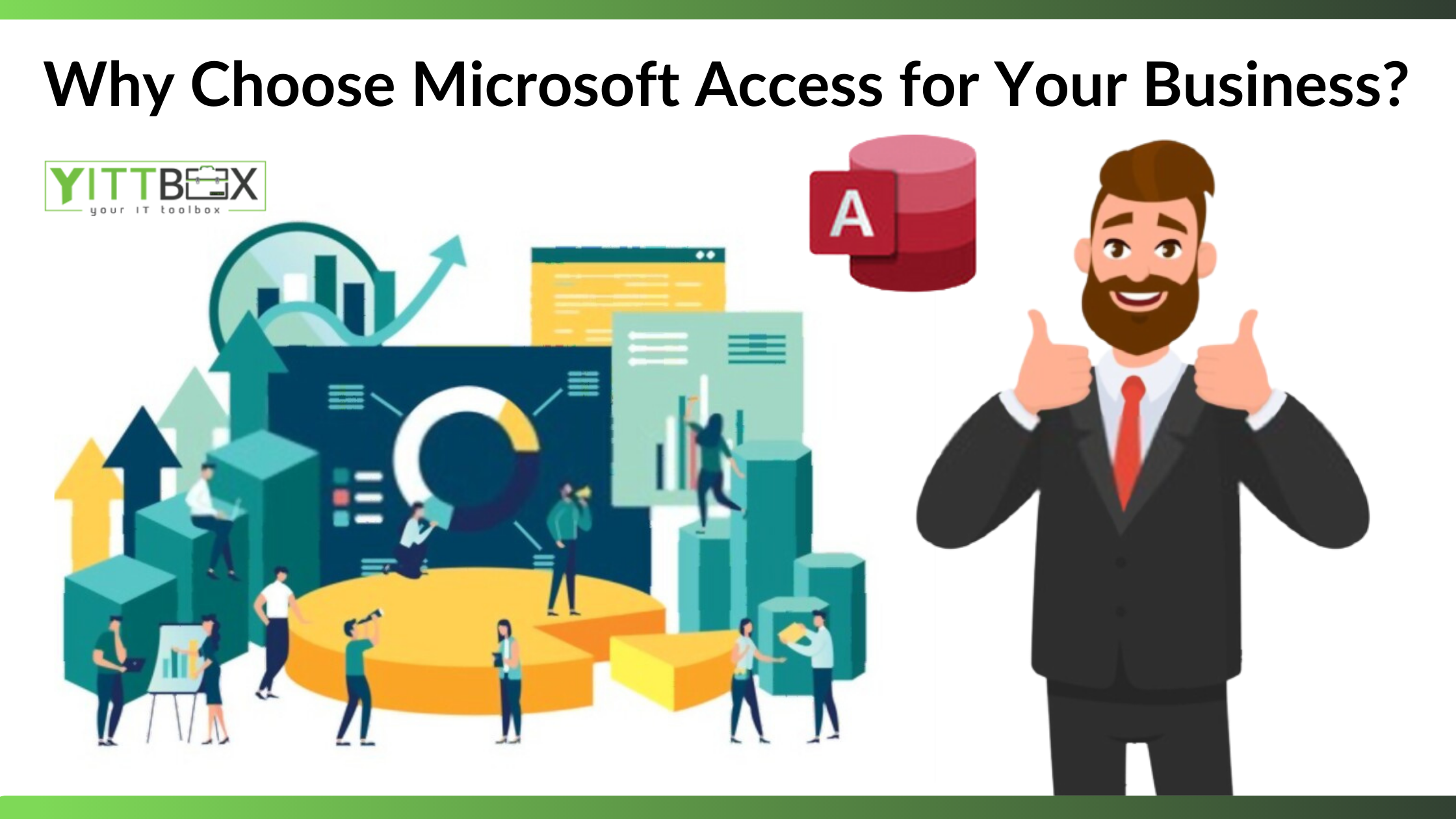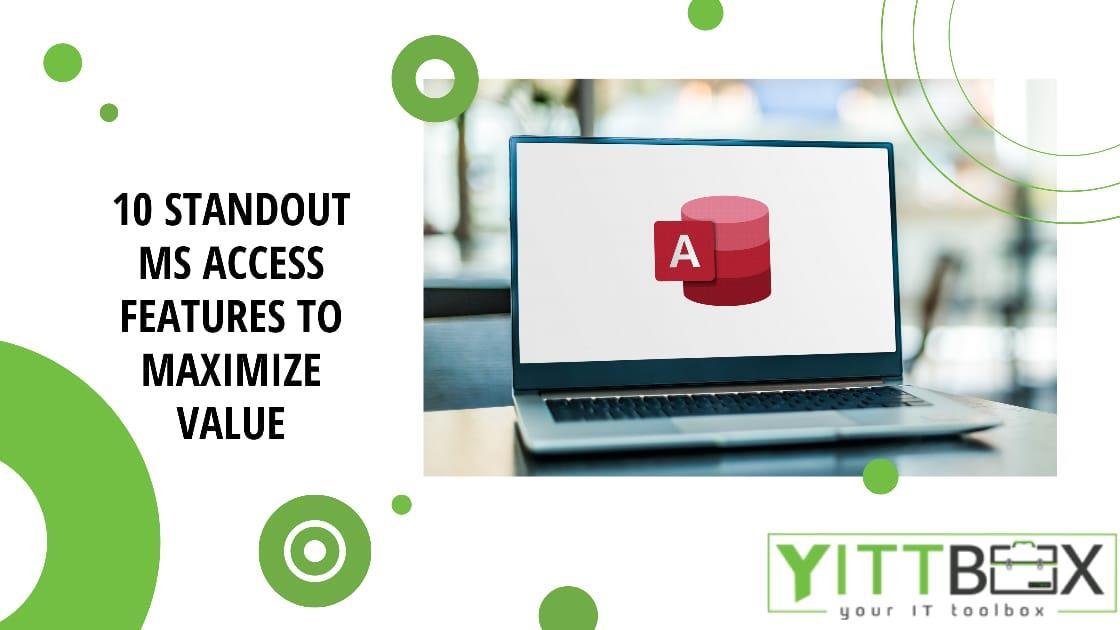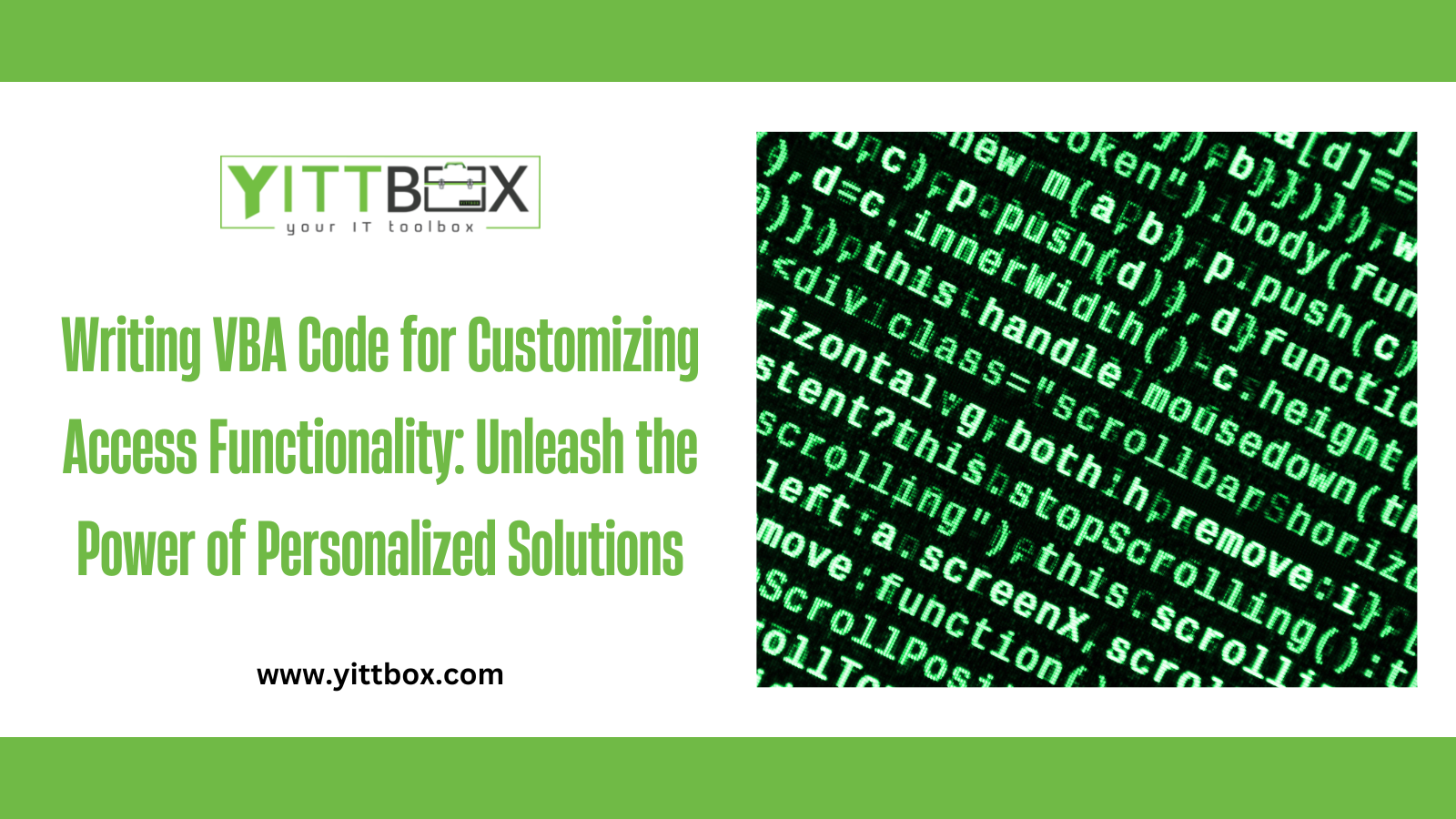Why Choose Microsoft Access for Business
You've been using Microsoft Excel to perform various business tasks, and it's been quite rewarding. "Then, why choose Microsoft Access for Business?" is probably a question you ask yourself often since both applications possess many similarities.
Before switching to MS Access, it's vital to understand the application, know its strengths, explore the tools and functions, and what business solutions they offer to meet and exceed your expectations. It also pays to understand how MS Access solutions compare to alternative solutions offered by competing database applications.
Further, it's even better to analyze both programs at deep levels to understand which application serves your business the best. While both Access and Excel can store significant amounts of data and run powerful queries to use the data in several ways, there are big-time differences that become the deciding factors for your business.
For instance, while Access is your best bet to maintain data integrity in specific formats to be accessed by several users, Excel is ideal for maintaining complex numerical data used for in-depth analysis. In other words, Access lets you store, organize, and manage data efficiently for easy retrieval and use by several people simultaneously, while Excel is excellent for analyzing data, performing complex calculations, and create high-quality charts to explore the outcomes of strategic planning.
The benefits of using Excel for your business cannot be overlooked, and it's a double benefit using it with Access to leverage the optimum benefits of both applications. But first, let's take a closer look at the benefits of using Microsoft Access and what's in store for your new or expanding business.
Microsoft Access for Business: The Microsoft Access Database and Other Database Applications
Microsoft Access has been in the market for nearly three decades, and it has enjoyed the status of an innovative database application for a long time. Those were the days where most relational databases were expensive or a standard DOS application.
Nowadays, several powerful database server software is available as open-source, and the Microsoft SQL Server Express Edition is available for free download. Businesses also have access to more powerful SQL Servers at a budget, and there are situations where a licensed SQL Server is already installed on-site. This leads you to the question, "Why use MS Access?"
The business cases
The primary reason for using Microsoft Access solutions is to quickly fulfill business needs and complete vital tasks in a short period. Nearly all small-scale database solutions can be empowered with this highly productive tool that is user-friendly that delivers impeccable results quickly.
Clients also find Access easy to use and are comfortable with the control of the application and everything available within a budget. The GUI toolkit is the standout factor of Access not found in any other database application. It's perfect to create databases for small and medium-sized businesses, including various departments, workgroups, and a series of projects in large organizations.
The good thing is, MS Access doesn't require any additional hardware, custom application, or external server operating system. As a result, it's ideal for use as a front-end database to build complex applications within budget.
Highly portable and versatile
For a Microsoft Access programmer, nothing comes even half as close to the flexibility and adaptability Access offers. The portability offers to transfer or copy files easily for other uses in relevant formats is another exclusive feature of Access. The ease of replicating files in different locations makes it an exceptionally flexible database tool. Users can easily make changes to meet their changing business needs and tasks.
Longevity
The fact that MS Access has been around for over 25 years speaks volumes of its performance and popularity. While there aren't improved versions coming frequently, the tool continues to amaze users as the most popular relational database software application capable of performing myriad tasks and complex management of data with unparalleled ease.
Popular Scenarios for Using Access
Here are common scenarios of why an MS Access programmer would continue using the application:
v For managing contacts
v For asset and inventory tracking
v Order tracking
v To track tasks assigned for a specific group
v For organizing lending libraries
v Event planning
v For tracking nutrition, diet, exercises, and other fitness activities
When Not to Choose MS Access for Business
Knowing when to avoid using MS Access is vital to ensure you derive maximum benefits from the application. However, there are circumstances where an MS Access database doesn't offer the efficiency you're looking for, and these include:
v Your business needs a web-based system to perform all tasks
v Your business has many concurrent users that count in hundreds, while Access ideally supports a few tens of users working simultaneously
v Your team is spread too far and across geographically, and using remote control solutions of Access proves cumbersome
v Some of your users are on Macintosh computers
v Yourbusiness has over a million records that are too big and beyond limits to work with MS Access
Final Thoughts
A database development company like YittBox brings the power of MS Access to your doorstep at a fraction of the price others propose. While MS Access isn't the only relational database management system out there, it's indeed the most popular one, boasting the highest level of efficiency and amazing flexibility.
Most RDBMS platforms are very rigid while handling data, but Access provides powerful integrated tools for creating visual interfaces to support data input and reporting. In addition, its in-built relational database architecture, Microsoft Access Database Engine, encourages enhanced flexibility to scale by seamlessly connecting with external data sources.
MS Access doesn't compromise on customization and flexibility, and you can make changes without any coding knowledge. For more complex Access applications that need coding, you can hire experienced MS Access developers like YittBox, who offer exclusive and comprehensive Access services at a budget.







